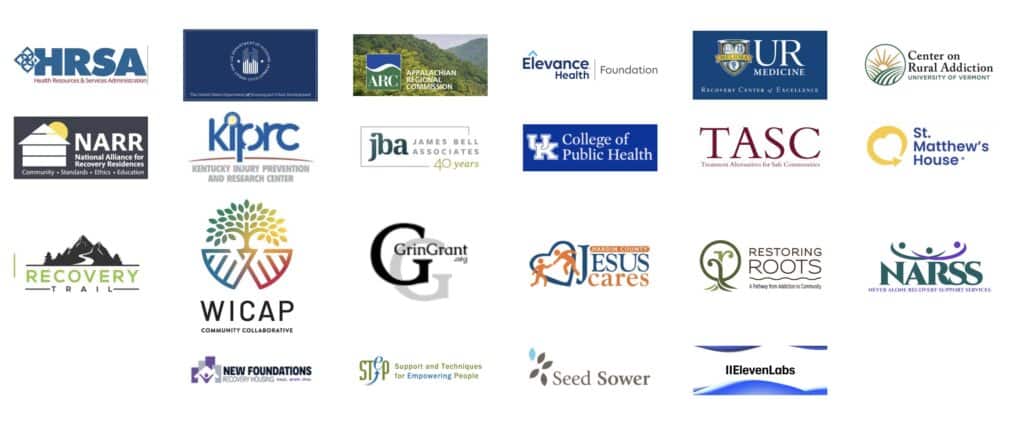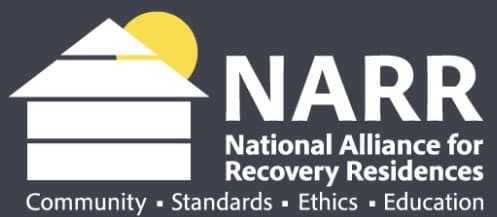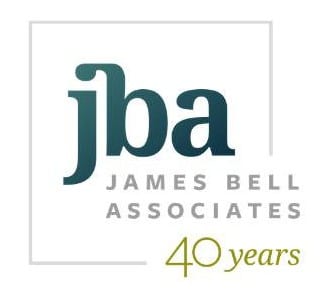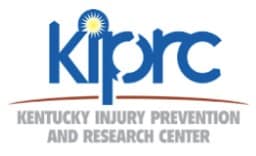It’s A Team Effort!

The Fletcher Group works closely with a wide range of professional organizations known for their quality of care and devotion to public service. Their expertise in public health, prevention, intervention, and recovery housing plays a crucial role in our ability to deliver a recovery model unprecedented in both effectiveness and financial sustainability. (For a detailed understanding of our unique Team Approach” to collaboration, click “It’s All About Partnering.”)
Elevance Health Foundation
Elevance Health Foundation is the philanthropic arm of Elevance Health, Inc. The Foundation works to improve public health through partnerships and programs in our communities with an emphasis on maternal child health, substance use disorder, and food as medicine. Through its key areas of focus, the Foundation also strategically aligns with Elevance Health’s focus on community health and becoming a lifetime, trusted health partner that is fueled by its purpose to improve the health of humanity. To learn about the Fletcher Group’s new partnership with SMART Recovery funded by the Elevance Health Foundation, visit our Elevance web page.
SMART Recovery
SMART Recovery is an international non-profit that provides assistance to individuals seeking abstinence from addiction. (SMART stands for Self-Management and Recovery Training.)
An Exciting New Partnership!
Having already supported over 3,500 face-to-face mutual-support groups and over 250 monthly online meetings, SMART Recovery recently partnered with The Fletcher Group to bring Smart Recovery’s programs, tools, and Successful Life Skills Handbook into over 100 rural recovery homes.

Sign Up For Assistance Today. It’s Free!
The Fletcher Group welcomes your application for assistance, which includes a $1,200 stipend for participating in the program and documenting the results, Contact us now by clicking “Online Registration Form” and filling out a brief form.
And to visit the SMART Recovery website, simply click on their logo to the left.
NARR

The National Alliance for Recovery Residences is the most widely known organization supporting quality recovery residences in the United States. It was founded as a nonprofit organization by a group of organizations and individuals dedicated to promoting Best Practices in the operation of recovery residences. It is now recognized as such by the United States Substance Abuse and Mental Health Services Administration (SAMHSA) as well as by the GAO Report on Recovery Housing.
NARR promotes well run, ethically operated centers and helps those with substance abuse and opioid abuse disorders gain access to high-quality recovery housing. It does this through advocacy, developing standards and training, and defining placement procedures, education, and research.
NARR facilitates working relationships with federal government agencies, national addiction and recovery organizations, and state recovery housing organizations. As a strategic partner, NARR applies widely referenced national standards for the operation of recovery residences. It currently supports 30 different state affiliate organizations providing recovery housing to over 25,000 persons living in over 2,500 certified recovery residences throughout the U.S.
In partnership with the Fletcher Group, NARR will contribute in the following ways:
- By supporting the National Advisory Board through close collaboration with NARR President Dave Sheridan.
- By defining, testing, and populating the facility quality standards applied by the National Directory of Recovery Housing Program. Those standards can be accessed by anyone at “Find Help Now Kentucky” website maintained by the Kentucky Injury Prevention and Research Center at the University of Kentucky.
- By helping define the core content for training recovery housing personnel, including staff roles and responsibilities.
- By creating a curriculum that addresses core content training areas.
- By helping define a recovery housing database and structure that documents resident outcomes.
- By providing the consultation and support needed to develop recovery residences.
NARR is also well known for producing a number of influential publications, including its “Primer on Recovery Residences.” In addition, NARR President Dave Sheridan has contributed to the National Council publication titled, “Building Recovery: State Policy Guide for Supporting Recovery Housing.”
James Bell Associates

James Bell Associates is well known for its work in evaluating client- and systems-level outcomes, conducting focus groups, and interviewing families, community service providers, agency leaders and staff—all of which can be seen at work in its publication titled, “Evaluation of the Community Substance Abuse Prevention and Treatment Program.” JBA is currently involved in another large study titled titled, “Prenatal Alcohol and Other Drugs Exposures in Child Welfare Populations.”
JBA has successfully engaged tribal entities to evaluate their health and human services programs and provides Technical Assistance for their treatment programs. Within the past ten years, they have worked with over 70 different tribes, tribal consortia, tribal organizations, and urban Indian organizations. As a result of this work, they have a deep understanding of the prevalence of SUDs in such populations.
JBA’s expertise in developing highly valuable evaluation programs will greatly aid the Fletcher Group, in particular the ongoing collaboration between our renowned Recovery Center Of Excellence (RCOE) and the University of Kentucky. JBA will provide the consultation and technical expertise to inform evaluation as well as technology and culturally sensitive Technical Assistance. The evaluation team will be responsible for the overall evaluation of all RCOE strategies. They will use both qualitative and quantitative methods to produce an annual evaluation report. They will collaborate with the United States Health Resources and Services (HRSA) administration to develop and apply RCOE performance measures and indicators. They will also interview stakeholders to inform and improve RCOE strategies and activities.
Kentucky Injury Prevention and Research Center

The Kentucky Injury Prevention and Research Center (KPIRC) is the result of a unique partnership between the University of Kentucky and the Kentucky Department for Public Health. Its purpose is to decrease the burden of injury in the Commonwealth of Kentucky and beyond.
In addition to being KPIRC’s Director, Dr. Terry Bunn serves as the Fletcher Group’s Co-Investigator and Academic Partner. Her extensive experience with SUD and OUD victims includes over 17 years as an injury epidemiologist where she studied fatal and non-fatal injuries, including drug overdoses. Dr. Bunn has over 60 peer-reviewed publications on a wide range of subjects, from the prevention of drug intoxication and other toxic exposures to motor vehicle and other traumatic injuries. Her current CDC-funded programs involve population- and case-based surveillance of fatal and nonfatal drug overdoses, development of effective community interventions to reduce drug overdoses, and evaluation of drug-related laws and regulations.
Teams under Dr. Bunn’s leadership have built and implemented FindHelpNowKY.org, a near real-time SUD/OUD treatment facility locator. The University of Kentucky is now in its eighth year of collecting data and analyzing and reporting outcomes for Recovery Kentucky’s 18 recovery centers.
Find Help Now Kentucky

Tyler Jennings and Amber Kizewski lead the registry team at FindHelpNowKY.org. They oversee a fully dedicated Recovery Housing Registry dedicated to expanding the state registry and collaborating with other non-profits and states with the goal of creating a national registry that can help those with SUDs and OUDs find high-quality recovery housing. With the help of Dr. Terry Bunn, they also oversee development of a RedCap™-based platform for inputting and collecting data collected by the Fletcher’s Group’s Recover Center of Excellence (RCOE). The repository plays a crucial role in evaluating recovery center performance and developing and disseminating reports and peer-reviewed publications.
The website is also aided by the Kentucky Injury Prevention and Research Center (KIPRC) which applies a variety of state-based data to evaluate social determinants and other factors impacting individual vulnerabilities, prevention, and relapse risk. To this end, Medicaid and unemployment benefit histories can serve as objective measures to assess prevention and intervention program efforts.
